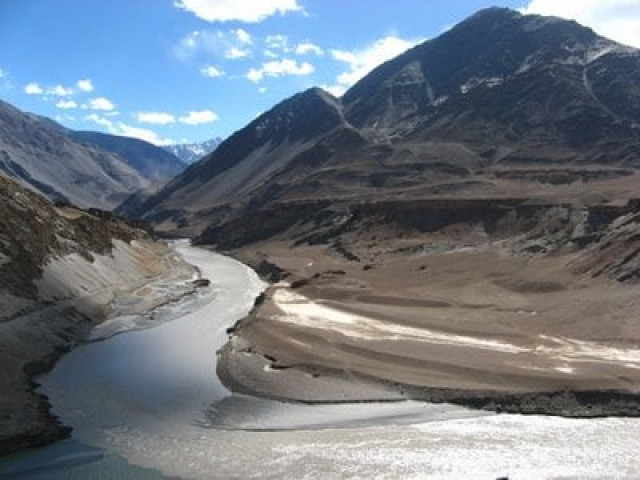Living Indus project aims to restore river’s ecosystem
Govt, UN hope to repair and restore natural resources, ecosystems

Sindh Chief Minister Syed Murad Ali Shah and UN Resident Coordinator Julien Harneis, in their meeting at the CM House on Friday, agreed to launch the Living Indus initiative.
It aspires for an Indus basin that can sustain a thriving civilisation from its sources to the ocean.
The meeting was attended by Irrigation Minister Jam Khan Shoro, Principal Secretary Fayaz Jatoi, UN Representatives Aftab Bhatti and Imran Leghari.
The Living Indus initiative hopes to restore and repair the natural resources and ecosystems of the basin to ensure that they are resilient to climate change.
The chief minister said that realising the vision of the Living Indus initiative will require all available tools.
He stressed the need to launch a wider and deeper mobilisation than ever before and deploy a level of creativity that would draw from the pool of energy in Pakistan.
He added that there was no "silver bullet" solution to the Indus' problems.
"Instead, success will come from the multiplication and combination of hundreds of individual approaches and initiatives which, together, will turn the present trends around," the CM said.
He added that the vision of the initiative sets the destination.
"A thousand pathways lead to it, we must tread on all of them."
UN Resident Coordinator Harneis said that the initiative was not a challenge to existing policies and programmes, nor a proposal to change these.
He added that instead, it sought to establish the health of the Indus Basin through the implementation of a series of fresh and innovative interventions in the short term.
He said this could be achieved through the identification and deployment of as-yet-untried approaches drawn and methods tried in other parts of the world.
The chief minister and visiting UN representatives agreed on a working list of 26 interventions/programmes.
They include sustainable development of new and existing protected areas, including zero carbon protected areas, building back biodiversity to restore terrestrial, aquatic and bird life in the Indus Basin, integrating coastal zone management in the Indus Delta to improve climate resilience, scaling up and expanding geographical outreach for Glacial Lake Outburst Floods initiatives, supporting and scaling up implementation of ecosystem-based adaptation approaches.
There would be nature-based solutions for conservation of the Indus watershed through integrated watershed management and improved management of saline water Right Bank Outfall Drain (RBOD) and Left Bank Outfall Drain (LBOD)



















COMMENTS
Comments are moderated and generally will be posted if they are on-topic and not abusive.
For more information, please see our Comments FAQ